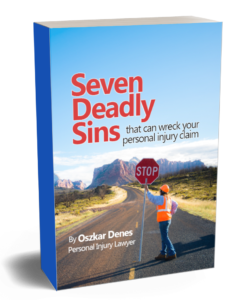WorkCover claims for first responders:
special rules apply
Ordinarily, if you want to make a WorkCover claim, you must prove that you suffered an injury at work – or that work was a significant contributing factor to your injury. If you are a first responder and you suffer mental injury, special rules apply to you. These rules make it easier to qualify for workers’ compensation benefits.
Who are first responders and other “eligible employees”?
The relevant legislation lists those workers who may qualify as first responders. These are paramedics, police officers, fire service officers, volunteer fire fighters, corrective services officers, child protection officers, a member of the SES, a member of the rural fire brigade, certain doctors and nurses (in trauma, emergency and critical care), certain mine workers who perform rescue functions. Certain private sector and local government employees also fall within the definition.
Keep in mind, if your job is listed above, you are a first responder only if your job requires you to respond to time critical life threating or traumatic incidents.
The special rules which we discuss below also apply to certain other workers. These include, for example, Ambulance or Police Service employees if they experience repeated or extreme exposure to the graphic details of traumatic incidents. For instance, workers who are required to view child exploitation material or those who recover human remains fall into this category.
What are the special rules?
If you are diagnosed with Post-Traumatic Stress Disorder and any time before the diagnosis you worked as a first responder or “eligible employee”, you can claim workers’ compensation and it is automatically assumed that your PTSD was caused in your role. This means you don’t have to prove when your PTSD first manifested. You also don’t have to prove what caused your PTSD.
WorkCover can’t reject your claim unless they can prove that your PTSD wasn’t caused by your employment as first responder or “eligible employee”. This is a very substantial burden for WorkCover to overcome and it means that, unlike in a “normal” claim, it will be relatively easy for you to make a WorkCover claim and it’s much more likely that it will be accepted.
The major benefit for these first responders is that this new simplified pathway will also limit the need to discuss the incident that caused their PTSD or recount past traumatic incidents they have endured throughout their careers, which in itself can be a very upsetting experience.
Free book offer: what to expect in your injury claim
Many firms try to rush you to sign up with them without carefully considering your options. We encourage you to first learn about your personal injury claim. You should ask yourself:
- How do you calculate your compensation amount?
- How should you choose your lawyer? Do you just choose by firm name regardless of who is really in charge of your matter? Has your lawyer ever argued a case in court?
- What is a no win – no fee agreement? How much will it cost?
Our book is available to you free of charge. You don’t have to be a client to receive this book. Head to the order page and we will be happy to send you a copy straight away.

25% Cap on legal costs
In all of our personal injury compensation matters, we act on a No Win – No Fee basis. What that means is, there’s no upfront cost to you.
In Queensland, most compensation firms will charge you 50% of your compensation amount – the maximum allowed at law. This is very expensive. Our fee is different. We will cap our fee at 25% . Remember also, these are the maximum fees we will charge. If our fee in your claim is less, then we charge the lesser amount.
Before you engage us, we will provide you a written Disclosure Notice and a Client Service Agreement. These documents set out in detail the service we provide, as well as our fees and outlays. Before you sign anything, you can take these documents home with you, and study them with your family. You can take as long as you need, there is never any pressure from us. If anything in these documents doesn’t make sense to you, we can discuss it with you and you are free to ask another lawyer to give you advice. And remember, no win – no fee agreements come with a 5 day cooling off period for extra peace of mind.
